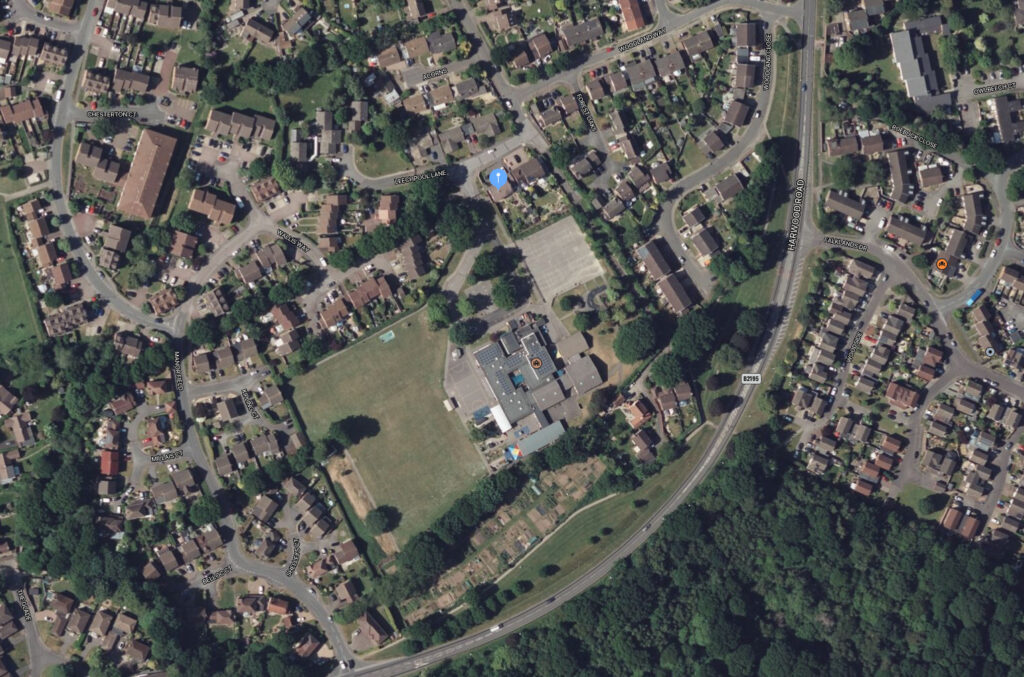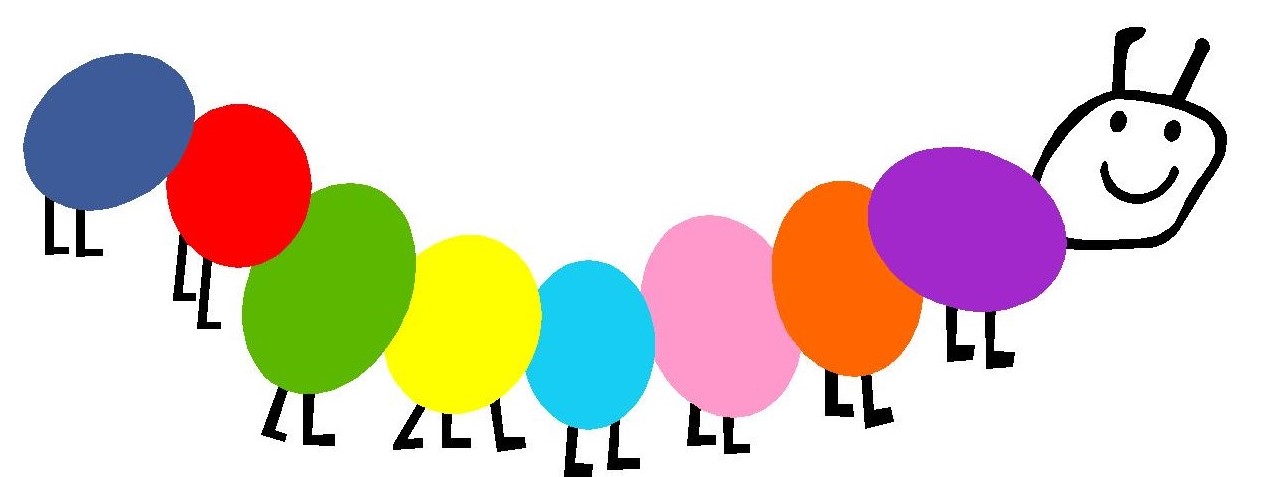Here’s a link to a virtual tour of Leechpool Primary school with a snapshot of Caterpillar Nursery
Leechpool Caterpillar Nursery is open term time. Our session times are:
- Monday to Friday
- 8.50am to 11.50am
- 11.50am to 2.50pm
- OR 8.50am to 2.50pm
- 3-6pm After-School Club (Leechpool Primary school children only)
Location and contact information
- Telephone number: 01403 900622 or 07483171911
- Email address: [email protected] OR [email protected]
- Address: Leechpool Lane, Horsham, West Sussex, RH13 6AG

Our setting aims to
- Provide high quality care and education for children below statutory school age.
- Work in partnership with parents to help children to learn and develop.
- Add to the life and well-being of the local community; and
- Offer children and their parents/carers a service that promotes equality and values diversity.
Parents/Carers
Parents as part of our setting will be:
- Valued and respected;
- Kept informed;
- Consulted and involved in their child’s development;
- Are always included in events and encouraged to become more involved.
We aim to ensure that each child:
- Is in a safe and stimulating environment;
- Is given generous care and attention, because of our high ratio of staff to children;
- Has the chance to join in with other children and adults to live, play, work and learn together;
- Is helped to take forward their learning and development by being helped to build on what they already know and can do;
- Has a personal key person who makes sure each child makes their best possible progress;
- Is in a setting that sees parents as partners in helping each child to learn and develop.
How we provide for development and learning
Children start to learn about the world around them from the moment they are born. The care and education offered by our setting helps children to continue to do this by, providing all of the children with stimulating activities that are appropriate for their age and stage of development.
The Areas of Development and Learning comprise
- Personal, Social and Emotional Development
- Communication and Language
- Physical Development
- Literacy
- Mathematics
- Understanding the World
- Expressive Arts and Design
The Characteristics of effective learning are
- Playing and Exploring (engagement)
- Finding out and exploring
- Playing with what they know
- Being willing to ‘have a go’
- Active learning (Motivation)
- Being involved and concentrating
- Keep on trying
- Enjoying achieving what they set out to do
- Creating and thinking critically (thinking)
- Having their own ideas
- Finding ways to do things
- Choosing ways to do things
For each area, the statutory framework for Early Years Foundation Stage (EYFS) guidance sets out the Early Learning Goals. These goals state what is expected that children will know and be able to do by the end of the reception year of their education.
The guidance also sets out in ‘Development Matters’, the likely stages of progress a child makes along their learning journey towards the early learning goals. Our setting has regard to these matters when we assess the children and plan for their learning.
Your child will be learning skills, acquiring new knowledge and demonstrating their understanding through the 7 areas of learning and development. Children should mostly develop in the three prime areas first. These are:
Personal, Social and Emotional Development
Our programme supports children to develop:
- Positive approaches to learning and finding out about the world around them;
- Confidence in themselves and their ability to do things, and valuing their own achievements;
- Their ability to get on, work and make friendships with other people, both children and adults;
- Look after ourselves, other people and the environment;
- Their ability to dress and undress themselves, and look after their personal hygiene needs; and
- Their ability to expect to have their ways of doing things respected and to respect other people’s ways of doing things.
Communication and Language
Our programme supports children to develop:
- Conversational skills with one other person, in small groups and in large groups to talk with and listen to others;
- Their vocabulary by learning the meaning of – and being able to use – new words;
- Their ability to use words to describe their experiences.
Physical Development
Our programme supports children to develop:
- Increasing control over the large movements that they can make with their arms, legs and bodies, so that they can run, jump, hop, skip, roll, climb, balance and lift;
- Increasing control over the small movements they can make with their arms, wrists and hands, so that they can pick up and use objects, tools and materials; and
- Their understanding about the importance of, and how to look after their bodies.
These prime areas are the most essential for your child’s healthy development and future learning. As they grow, the prime areas will help them to develop skills in four specific areas. These are:
Literacy
Our programme supports children to develop:
- Their knowledge of the sounds and letters that make up the words we use;
- Their ability to listen to, and talk about, stories;
- Knowledge of how to handle books and that they can be a source of stories and information;
- Knowledge of the purposes for which we use writing; and
- Making their own attempts at writing.
Mathematics
Our programme supports children to develop:
- Understanding and ideas about how many, how much, how far and how big;
- Understanding and ideas about patterns, the shape of objects and parts of objects, and the amount of space taken up by objects;
- Understanding that numbers help us to answer questions about how many, how much, how far and how big;
- Understanding and ideas about how to use counting to find out how many; and
- Early ideas about the result of adding more or taking away from the amount we already have.
Understanding the World
Our programme supports children to develop:
- Knowledge about the natural world and how it works;
- Knowledge about the made world and how it works;
- Their learning about how to choose, and use, the right tool for a task;
- Their learning about computers, how to use them and what they can help us to do;
- Their skills on how to put together ideas about past and present and the links between them;
- Their learning about their locality and its special features; and
- Their learning about their own and other cultures.
Expressive Arts and Design
Our programme supports children to develop:
- The use of paint, material, music, dance, words, stories and role-play to express their ideas and feelings; and
- Their interest in the way that paint, materials, music, dance, words, stories and role-play can be used to express ideas and feelings.
Our approach to learning and development and assessment
Learning through play
Play helps young children to learn and develop through doing and talking. Our setting provides a range of play activities which help children to make progress in each of the areas of learning and development. In most of these activities children decide how they will use the activity and this free choice is fully encouraged and, in other activities, an adult takes the lead in helping the children to take part in the activity.
What is always on offer – Children’s free choice
Painting, drawing, colouring, tracing, cutting and sticking, free modelling [otherwise known as junk modelling!], chalking, playdough, construction [duplo, stickle bricks, wooden blocks, interstar, poly m etc.], books, puzzles and games, musical instruments, sand play, water play, role play area [for example this could be a hospital, shop, vets, restaurant or house], clothes and props, small world play, climbing frame, bikes and scooters, bats and balls, hoops and bean bags, mud kitchen, planting and lots more.
Festivals and Celebrations
We also include festivals and celebrations where children can dress up, listen to and play different cultures – For example Chinese New Year, Diwali, Christmas, Easter, Father’s Day, Mother’s Day and Valentine’s Day. We encourage families to tell us about celebrations/festivals recognised at home and in their community
Assessment
We assess how young children are learning and developing by observing them frequently. We use information that we gain from observations, as well as from photographs, drawings, paintings etc. of the children, to document their progress and where this may be leading them. We believe that parents know their children best and we ask them to contribute to assessment by sharing information about what their children like to do at home and how parents are supporting development. We collect this information from you when you first start with us then termly plus more frequently with WOW moment slips which are sent home for you to complete and return to us
We make periodic assessment summaries of children’s achievement based on our ongoing developmental records. These form part of the children’s records of achievement. We undertake these assessment summaries at regular intervals as well as times of transition.
